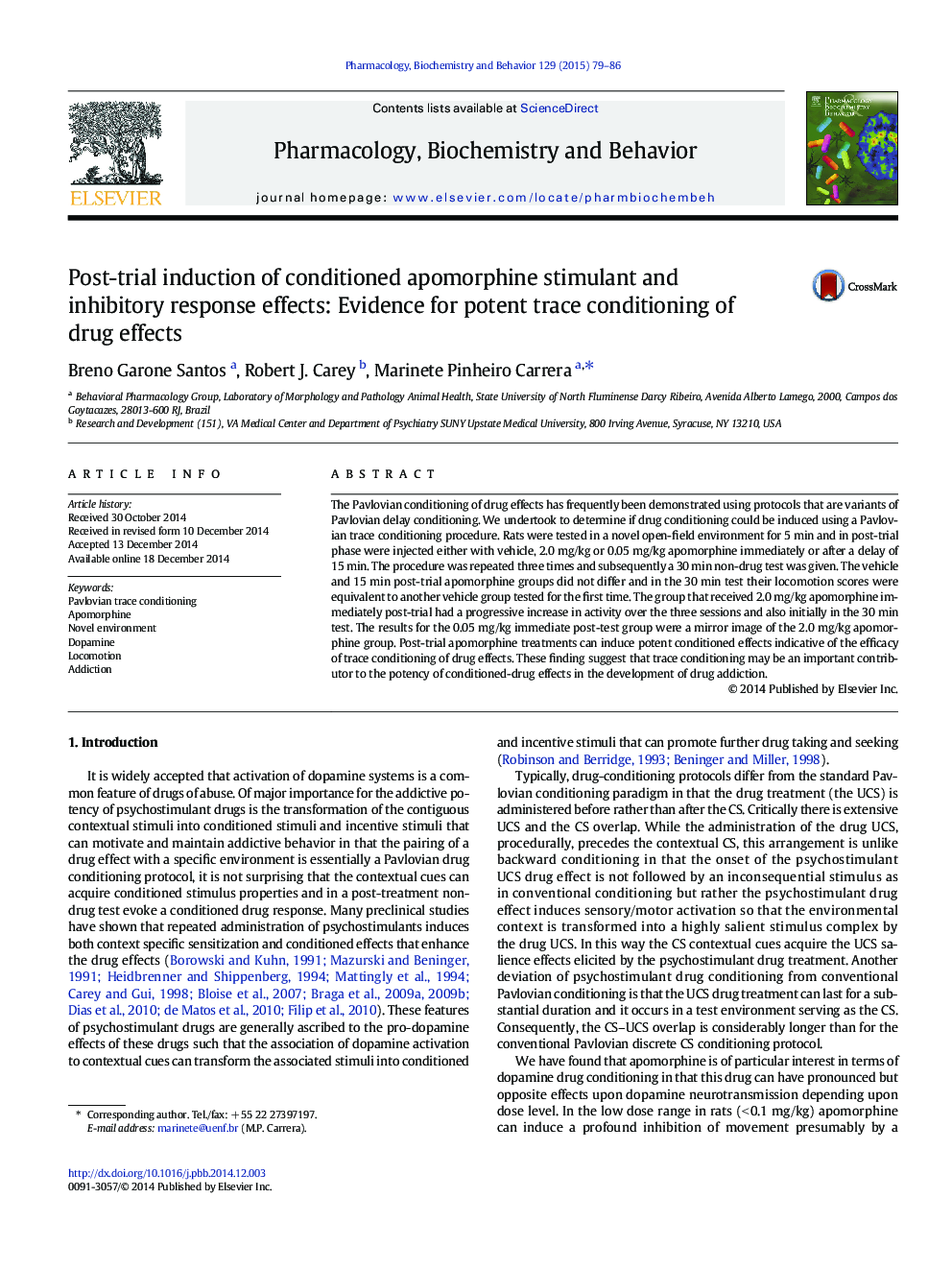| Article ID | Journal | Published Year | Pages | File Type |
|---|---|---|---|---|
| 8350824 | Pharmacology Biochemistry and Behavior | 2015 | 8 Pages |
Abstract
The Pavlovian conditioning of drug effects has frequently been demonstrated using protocols that are variants of Pavlovian delay conditioning. We undertook to determine if drug conditioning could be induced using a Pavlovian trace conditioning procedure. Rats were tested in a novel open-field environment for 5Â min and in post-trial phase were injected either with vehicle, 2.0Â mg/kg or 0.05Â mg/kg apomorphine immediately or after a delay of 15Â min. The procedure was repeated three times and subsequently a 30Â min non-drug test was given. The vehicle and 15Â min post-trial apomorphine groups did not differ and in the 30Â min test their locomotion scores were equivalent to another vehicle group tested for the first time. The group that received 2.0Â mg/kg apomorphine immediately post-trial had a progressive increase in activity over the three sessions and also initially in the 30Â min test. The results for the 0.05Â mg/kg immediate post-test group were a mirror image of the 2.0Â mg/kg apomorphine group. Post-trial apomorphine treatments can induce potent conditioned effects indicative of the efficacy of trace conditioning of drug effects. These finding suggest that trace conditioning may be an important contributor to the potency of conditioned-drug effects in the development of drug addiction.
Related Topics
Life Sciences
Biochemistry, Genetics and Molecular Biology
Biochemistry
Authors
Breno Garone Santos, Robert J. Carey, Marinete Pinheiro Carrera,
